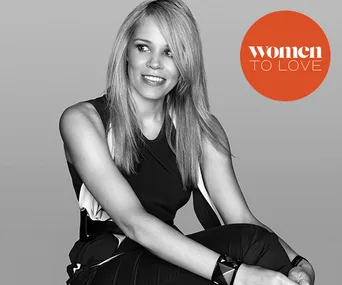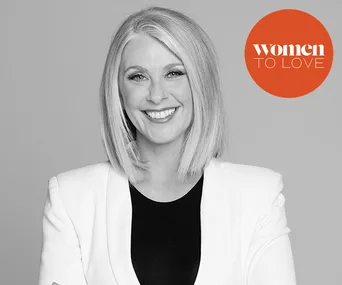When people imagine the future of filmmaking, the works of Lynette Wallworth are often the first that come to mind. Weaving virtual reality, immersive technology and documentary film making into quintessentially Australian stories has won her international acclaim.
Just last year, Lynette was awarded an Emmy for her film Collisions, which told the story of Nyarri Nyarri Morgan who witnessed nuclear testing in the South Australian desert in the 1950s. Much to Lynette’s delight, the film was shown to former UN weapons inspector Hans Blix. Like Collisions, most of Lynette’s projects focus on connecting people with the natural world in the hope to provoke change.
With absolutely no formal training in virtual reality technologies or film making, Lynette has instead relied on being unashamed to ask as many questions as she feels necessary — something she says, women in her industry are often anxious about doing.

Piers Mussared
What have you been most proud of during your career?
Making Collisions, which was the first visual reality work I made, was something I was really proud of. It was about the atomic tests in the South Australian deserts in the 1950s and that was a story Nyarri had really not shared, he held it close to himself waiting for a time when he wanted to share it, particularly with politicians and we managed to do that. We carried that virtual reality work all the way to parliament house in Canberra.
Then we went onward and presented it at the UN buildings in Vienna. It was the moment when a work does everything and more than what you might hope.

Piers Mussared
Have you made any mistakes during your career/is there anything you would’ve done differently?
I haven’t’ had a direct path to this sort of work. I studied painting at ask school and then photography for my post-graduate studies. I never actually studied the technologies that I’ve ended up working with. I never knew enough about the technology or their limitations, which meant that I was always trying to push the boundary without realising. So I never said something couldn’t be done.
I don’t look back and think about the direct path I could have taken to get where I am now because I’d have a completely different attitude.
What advice do you have for young women getting into your industry?
People who work with emerging technologies, or maybe even just people who work in a different field to you with their own unique jargon, will often speak what seems like a foreign language. And the language can exclude you, because you don’t know the words and what they’re meant to describe. Being unafraid to speak up when I don’t understand something has always been important in the development of my career.
I am continually asking people to explain things to me. If I don’t ask a question about something I don’t understand from the beginning, it just becomes difficult to ask later and that information is then blocked from me. From early on I’ve had to overcome any kind of shyness I had about asking questions. Always ask questions.
Have you experienced sexism at work and how did you deal with it?
I’m likely to experience sexism at many of the initial meetings for projects I’m a part of. Some people in the technology industry, who don’t know or haven’t met me, will try explaining the field to me. That is particularly irritating. When someone’s assuming you don’t know something and speaking down to you, that’s annoying.
One of the ways I get around this is that I like to work with people who aren’t really old hands at what they’re doing. If they haven’t spent a lifetime already working with men that person will automatically be a better person for me to work with, they’ll be more receptive to what I’m talking about. If you have someone that is stuck in their habits, I have to spend a lot of time trying to insist on something. I need someone who isn’t stuck in their ways and isn’t going to question me.

Prudence Upton
How can your industry adapt and change?
The industry will only change once we’ve undone the imbalance that is well and truly present.
What Create NSW has done with their film grants, where you have to have female creatives in your main team otherwise they won’t give you funding, is a great way of undoing a historical imbalance. It’s proactive. I was given many great opportunities by Sundance. When virtual reality was first emerging as a substantial form the institute said ‘well if we don’t promote diverse voices and give them the opportunity to create we’re going to end up with yet another monoculture where those who have access and are already established are the dominant voice’.
The opportunity given to me by Sundance allowed me to make Collisions, which as I said, is my proudest work. In Australia, it’s much easier to encourage diverse voices because we have public funding and can set the rules.

Patrick Meegan
Who’s been your biggest mentor and why?
I’ve had a number of people who have influenced my career for the better. But the ones that are really important are the people who understand and believe in what you’re trying to do. The people who see something in your work before anyone else has seen the work; they’re the people with a really good eye and the people you should surround yourself with.



